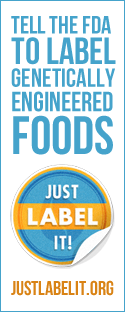|
CETA and The Canadian Foodservice Industry By Dwayne Reno After two years of negotiations Canada and the EU has reached an agreement on CETA (Comprehensive Economic and Trade Agreement), HERE. Although CETA has been a hot button issue in the media for some time now; I wanted to see if an agreement would be reached before sharing my thoughts.
With the media's attention drawn to supply management and EU cheese it's easy to lose sight of the other products that will be available under CETA. This week I would like to look at what EU products will be readily available to the Canadian foodservice industry under CETA. What is CETA supposed to do? The Comprehensive Economic and Trade Agreement (CETA) is supposed to strengthen trade between Europe and Canada leading to:
See what these all mean HERE. Why all the talk about EU cheese? Once CETA is ratified roughly 92 per cent of EU agriculture and food products will be exported to Canada, duty-free of course. The EU is a major processor of high quality foods which under CETA will enter the Canadian markets and give European businesses greater access to Canada’s high-income customers. The outcome of CETA looks very promising for Europe’s processed Agricultural products (PAPs). Also, CETA will bring an end to most of the Canadian duties on EU PAPs greatly benefiting the EU’s food processing businesses. Lower prices on dairy products however will greatly benefit Canadian foodservice operators who under the supply management system have seen two diary price hikes in 2016, HERE. Furthermore CETA will encourage Canadian dairy farmers to be more innovative under increased EU competition. Over the course of five years more EU cheese will enter the Canadian market. It will start of in smaller amounts to begin and gradually increase to 18, 500 tonnes per year or 4 per cent of the Canadian dairy market. This has angered some Canadian dairy farmers who are now seeking clarification on compensation talks originally started by the Harper government, HERE. Also a recent report by Sylvain Charlebois dean of the faculty of management and professor in the faculty of agriculture at Dalhousie University states, “CETA will change that, allowing European cheese to enter the Canadian market exempt from tariffs. That will result in a market loss for a small portion of Canada's milk production. And even that small loss could destabilize Canada's entire dairy system”. What other EU products will we see under CETA? All the talk in the media is about EU cheese and the supply management system; rightfully so since Canadian dairy farmers will be hardest hit by these coming changes. Other EU processed agricultural products (PAPs) will also be available to the Canadian foodservice Industry once CETA is ratified. This will include:
Also sensitive products such as beef, pork, sweetcorn and other EU agriculture and food products will soon be readily available to the Canadian foodservice industry. However CETA will not open up poultry or eggs on either side as it will maintain the EU entry-price system. In conclusion Canada is already greatly dependent on imported goods. 80 per cent of the fruits and vegetables consumed by Canadians are shipped or flown in from elsewhere leaving consumers susceptible to contamination and other food related bacteria, HERE. Some may also say that a high dependence on imports will continue to favor multi-national corporations at the cost of local Canadian business. Well, whatever your take is on the topic CETA could be ratified as soon as 2017 by the European parliament. Until next time your customers want to know why they should spend money at your restaurant, bar or cafe. So give them the goods!
0 Comments
Leave a Reply. |
Advertisement
AuthorDwayne Reno CEO & Founder Social Chat Blog
Once a month, Building Block Associates serves up some food for thought with our foodservice Social Chat Blog. Archives
February 2019
Categories
All
|


 RSS Feed
RSS Feed


